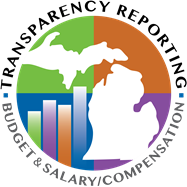
Great Lakes Education and Outreach Specialist Elizabeth Christiansen visited to do a presentation about freshwater fish and Michigan’s Great Lakes. The dissection project was geared toward upper elementary students covering the following academic standards:
- MS-LS1-5 Construct a scientific explanation based on evidence for how environmental and genetic factors influence the growth of organisms.
- MS-LS1-4 Use argument based on empirical evidence and scientific reasoning to support an explanation for how characteristic animal behaviors and specialized plant structures affect the probability of successful reproduction of animals and plants respectively.
- MS-LS4-2 Apply scientific ideas to construct an explanation for the anatomical similarities and differences among modern organisms and between modern and fossil organisms to infer evolutionary relationships.

Christiansen engaged Regent Park scholars in anatomical and physiological vocabulary and higher-level thinking questions. Using scissors, pins, and probes, students dissected an Atlantic salmon, identified the fish's organs, and learned how the organs helped the salmon to function.
“The students were engaged and were able to apply what they learned to their knowledge of ecosystems and how living organisms live and adapt to their environment,” said Donell James, middle school and specials dean at Regent Park.

James shared it’s important to engage students in activities such as this project because it gives students the ownership over their own learning experience, and they are able to work and socialize with other students. One student told James that they appreciated this project because they didn't have the chance to do activities like this while they were in virtual learning.
Hands-on learning benefits students because it makes their learning tangible. They can see and feel the lesson in the process. Students enjoyed the experience of getting to see what was inside of the Atlantic salmon, and using the tools to dissect the fish.
“The Summer Learning Program is critical because it helps us to prevent summer learning loss,” said James. “We get to keep students engaged in learning during a period where they usually opt out of academics.”
Regent Park is thankful for their authorizer, Lake Superior State University, who partners with them to provide these instructional experiences. “Science is a growth opportunity for Regent Park Scholars, and this partnership has helped us to create more hands-on learning projects for our students in this content area,” said James.
Regent Park Scholars is a tuition-free, public charter school in Detroit, Michigan, serving students in kindergarten through eighth grade. It is part of the National Heritage Academies network, which includes more than 100 tuition-free, public charter schools serving more than 65,000 students in kindergarten through 12th grade across nine states. For more information, visit nhaschools.com.
Visit Regent Park Scholars's blog to read more stories like this.

